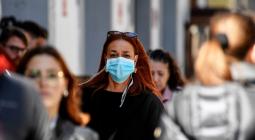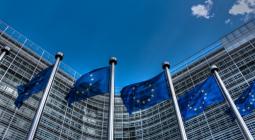UN Officials Emphasize Importance of Inclusiveness as Meetings Go Virtual.

STORY HIGHLIGHTS
The Presidents of the UNGA and ECOSOC stressed the need for maximum transparency and inclusiveness as meetings increasingly take place in virtual, remote formats.
They also updated governments on progress to establish alternative decision-making methods while meetings cannot take place in person due to the COVID-19 pandemic.
Also during the joint virtual briefing, the UN Secretary-General called for a recovery that builds a more inclusive economy, guided by the 2030 Agenda for Sustainable Development, and addresses the inequalities that leave so many people vulnerable to social and economic shocks.
The Presidents of the UN General Assembly (UNGA) and UN Economic and Social Council (ECOSOC) stressed the need for maximum transparency and inclusiveness as meetings increasingly take place in virtual, remote formats. They also updated governments on progress to establish alternative decision-making methods while meetings cannot take place in person due to the COVID-19 pandemic.
The officials were speaking during a joint virtual briefing on 27 March 2020. In response to a Member State’s question about civil society access to virtual meetings, UNGA President Tijjani Muhammad-Bande said this is the time for more, not less, transparency. He said technological tools must be developed to enable everyone “legally allowed” to participate to be present for discussions.
"This is the time for more, not less, transparency."
ECOSOC President Mona Juul agreed on the need for inclusiveness, and noted that this is part of the reason for the cancellation of some ECOSOC meetings that had been planned for March and April.
On decision-making methods, Muhammad-Bande said an alternative approach has been proposed for the UNGA while it cannot meet in person, and Juul said ECOSOC would make use of a similar procedure if approved. The procedure is based on the commonly used “silence procedure” for finalizing agreement following intergovernmental consultations. Similarly, the UN Security Council is considering a way to adopt resolutions and decisions such as through signed written votes and announcement of the results over video conference, said the Security Council President during the briefing.
The UNGA President confirmed that all co-facilitators are in contact with delegations and consultations are ongoing. The ECOSOC President confirmed virtual consultations as well. She said that that when Member States reach informal agreement on the outcomes of the 2020 sessions of the Financing for Development (FfD) Forum and the High-level Political Forum on Sustainable Development (HLPF), the texts will be finalized using the silence procedure.
Juul also noted that the HLPF can play a pivotal role in monitoring and assessing impacts of COVID-19 on the implementation of the 2030 Agenda. Muhammad-Bande highlighted the need to follow through on commitments under the Addis Ababa Action Agenda (AAAA) for Financing for Development to build resilience and prevent inequalities from deepening, with the pandemic serving as a reminder that “humanity is only as safe as its most vulnerable groups.”
The joint briefing also featured remarks by the UN Secretary-General, the Deputy Secretary-General, and the head of the UN Department of Global Communications, Melissa Fleming, all bringing Member States’ attention to upcoming initiatives. Fleming said the UN is launching the ‘Communications for COVID-19 Solidarity’ Initiative to inform the global public about the pandemic and to counteract confusion and misinformation.
UN Secretary-General Antonio Guterres stressed the need to protect the “ultravulnerable” who cannot protect themselves. He also called for setting the stage for recovery from the pandemic in a way that builds a more inclusive economy, guided by the 2030 Agenda for Sustainable Development, and addresses the inequalities that leave so many people vulnerable to social and economic shocks.
Guterres and Deputy Secretary-General Amina Mohammed noted that a report will be issued during the week of 30 March 2020 on social and economic impacts of the virus. The report aims to help UN country teams to provide support in each country. [UN meeting summary] [Webcast of virtual briefing]
31 March 2020
IISDcris




